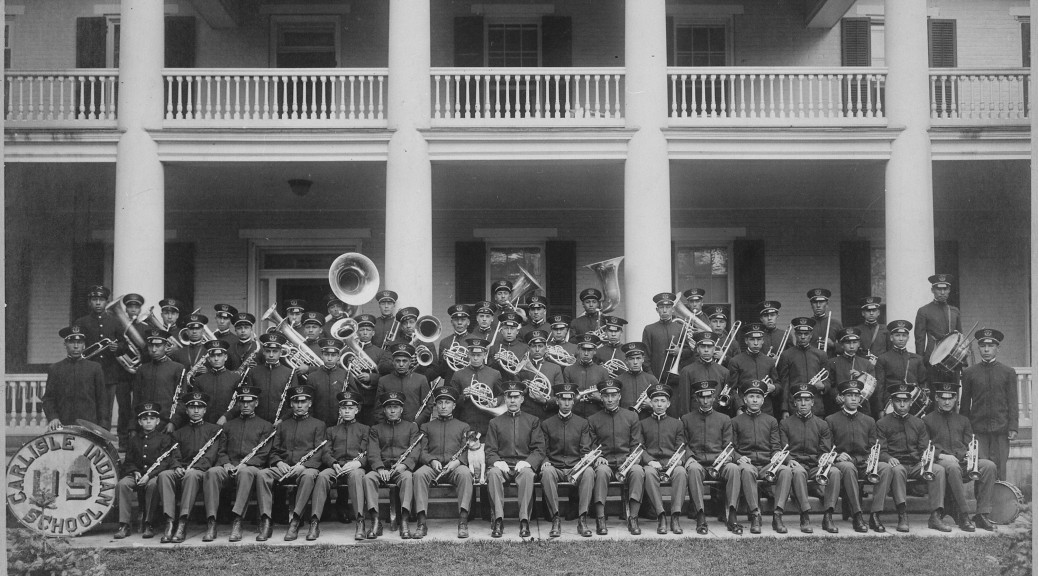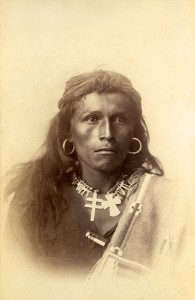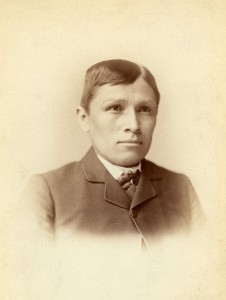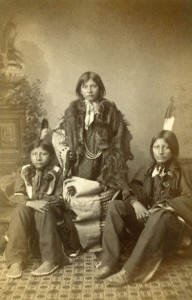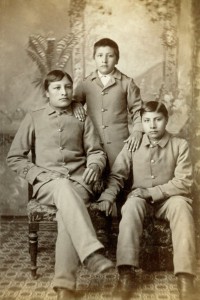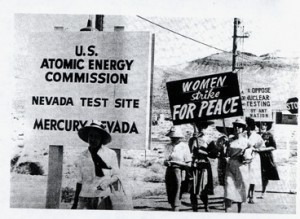November 1 Peace Love Art Activism
US Labor History
Nation’s First General Strike
November 1, 1835: in the nation’s first general strike for a 10-hour day, 300 armed Irish longshoremen marched through the streets of Philadelphia calling on other workers to join them. Some 20,000 did, from clerks to bricklayers to city employees and other occupations. The city announced a 10-hour workday within the week; private employers followed suit three weeks later. [Ency of Philadelphia article] (see March 31, 1840)
Portland, OR Teacher Strike
November 1, 2023: teachers and other school employees in Portland, Oregon went on strike canceling school for tens of thousands of children in Oregon’s largest school district.
The Portland Association of Teachers, which represents about 3,700 teachers, school counselors and other employees in the negotiations, is asking for higher wages, more time to plan lessons and a cap on class sizes, among other issues. They say that students’ emotional and academic needs have skyrocketed since the pandemic, and that employees are under strain and undersupported.
“We are on strike not just for ourselves, but for our students,” said Angela Bonilla, the union’s president. [NYT article] (next LH, see Nov 9; Portland, see Nov 26)
November 1 Peace Love Art Activism
Native Americans
The Carlisle Indian School
November 1, 1879: founded by Richard Henry Pratt, The Carlisle Indian School formally opened (in Carlisle, PA) with an enrollment of 147 students. The youngest was six and the eldest twenty-five, but the majority were teenagers. Two-thirds were the children of Plains Indian tribal leaders. The first class was made up of eighty-four Lakota, fifty-two Cheyenne, Kiowa and Pawnee, and eleven Apache. Pratt believed that the only road to success for the Native Americans was to assimilate them to the American culture. He was often quoted as saying “Kill the Indian, save the man”. NPR’s Radio Lab did a piece on the school. The following picture comparisons are from RL’s site. Click for others >>> Radio Lab) (next NA, see July 20, 1881)
|
|
|
November 1 Peace Love Art Activism
Black History
Louisiana Sugar Workers Lynched
November 1, 1887: thirty-seven Black striking Louisiana sugar workers were murdered when Louisiana militia, aided by bands of “prominent citizens,” shoot unarmed workers trying to get a dollar-per-day wage. Two strike leaders are lynched. [Smithsonian article] (next Labor History, see March 12, 1888; next BH & next Lynching, see August 18, 1889; see 19th century for expanded lynching chronology)
Poll Taxes
November 1, 1890: Mississippi adopted a new state constitution aimed at keeping African Americans from voting through poll taxes, literacy tests and other means. The constitution achieved the delegates’ chief aim through instituting mechanisms including poll taxes and literacy tests.
One of the state constitution’s framers, Democrat James K. Vardaman, who would go on to become governor and a US Senator, saw no need to hide his disdain for Black Americans.
“Mississippi’s constitutional convention of 1890 was held for no other purpose than to eliminate the n****r from politics,” he once said.
Many other states followed Mississippi’s lead. (next BH, see Nov 4)
Frank Sinatra/School Desegregation
On September 18, 1945 in Gary, Indiana, mounting pressure from civic groups such as the League of Women Voters, YWCA, and Gary Teacher’s Union to desegregate schools pushed district officials to make another attempt (see September, 1927) at integration. Again, white students took to the streets en masse in an effort to curb integration. On November 1, 1945, in an effort to win over white students against school desegregation, Gary officials invited Frank Sinatra to perform. Though very popular with teenagers, Sinatra’s appeal failed to get students back to school. [Time article] (BH, see Dec 16; SD, see September 1946)
Freedom Riders
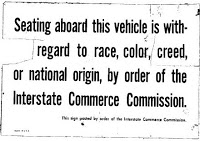
November 1, 1961: November 1st was the day the Interstate Commerce Commission’s new prohibition against segregated bus terminals was to go into effect. This was the ruling won by the Freedom Rides.
The Albany, Georgia bus terminal was located in the Black section of town and on November 1st — with a neighborhood crowd watching — nine Black students attempted to use the terminal’s “white-only” facilities. As planned, they leave without being arrested when ordered out by the police and then filed immediate complaints with the ICC under the new ruling. (BH, see Nov 9; FR, see Nov 29)
“Freedom Vote”
November 1, 1963: the “Freedom Vote” on this day was a mock election in Mississippi involving officially unregistered African American voters. The event was organized by the Student Nonviolent Coordinating Committee (SNCC) to dramatize the fact that only 7 percent of the potentially eligible African-American voters were actually registered.
The Freedom Vote was considered a success by SNCC leaders, and it inspired the idea for a larger effort in the summer of 1964. This became Freedom Summer, in which about 1,000 white northern college students were recruited to help African-Americans register to vote. (see Nov 19)
SOUTH AFRICA/APARTHEID
November 1, 1995 South Africans voted in their first all-race local government elections, completing the destruction of the apartheid system. (see October 30, 1996)
Kayla Morris
November 1, 2018: Kayla Morris, of Antioch, California and a member of Gold Rush, the San Francisco 49ers cheerleader, appeared to take a knee during the national anthem. It was the first time that an NFL cheerleader had done so. (see February 15, 2019)
Tommie Smith and John Carlos
November 1, 2019: fifty-one years after the U.S. Olympic Committee vilified Tommie Smith and John Carlos for taking a stand against racism and discrimination, banishing them from the Mexico City team and leaving them to face scorn and condemnation at home, it changed its mind. The Committee inducted Smith and Carlos into the U.S. Olympic and Paralympic Hall of Fame, an honor bestowed because of their “character, conduct and off-field contributions,” as well as their athletic achievements. [NBC Sports story] (next BH, see Nov 2)
November 1 Peace Love Art Activism
Fair Housing
Rent control
November 1, 1943: the federal Office of Price Administration first established rent control in wartime New York City. [Curbed NY article]
McCarthy kickbacks
From 1947 – 1949: Joe McCarthy accepted kickbacks from Pepsi Cola totaling $20,000 in exchange for helping Pepsi to circumvent the post-war sugar rationing. He also received another $10,000 from entrepreneurs in the pre-fabricated housing industry. Shortly thereafter, McCarthy joined the Senate Housing Committee and went on the road to speak out against public housing for veterans, extolling the benefits of the pre-fabricated home and offering it as an alternative. (FH, see May 3, 1948: RS, see Feb 17)
November 1 Peace Love Art Activism
The Red Scare & the Cold War
Free Speech
November 1, 1948: the famous Smith Act trial began, one of the major events of the Cold War, involved the prosecution of eleven leaders of the Communist Party for violating the Smith Act (enacted on June 29, 1940), which outlawed advocating the overthrow of the government. (FS, see Dec 10; Red Scare, see Nov 2; trial, see October 10, 1949)
H-Bomb
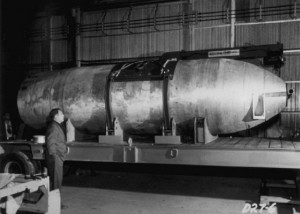
November 1, 1952: U.S. detonated the first hydrogen bomb at Enewetak Atoll in the Marshall Islands. [Air & Space article] (see Dec 13)
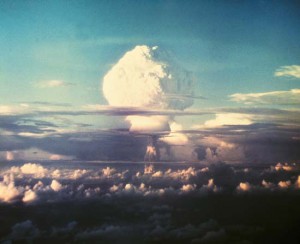
Women Strike for Peace
November 1, 1961: thousands of women throughout the United States demonstrated in protest against nuclear weapons. The rallies were organized by Women Strike for Peace, founded by Bella Abzug and Dagmar Wilson. WSP’s guiding statement, adopted in 1962: “We are women of all races, creeds and political persuasions. We are dedicated to the purpose of complete and general disarmament. We demand that nuclear tests be banned forever, that the arms race end and the world abolish all weapons of destruction under United Nations safeguards. We cherish the right and accept the responsibility to act to influence the course of goverment for peace. … We join with women throughout the world to challenge the right of any nation or group of nations to hold the power of life and death over the world.” [Swarthmore article] (see May 31, 1962)
November 1 Peace Love Art Activism
TERRORISM
November 1, 1950: two Puerto Rican nationalists tried to force their way into Blair House in Washington to assassinate President Harry S. Truman. One of the assailants was killed. [Truman Library article] (see March 1, 1954)
November 1 Peace Love Art Activism
Algeria
November 1, 1954, Algeria began a rebellion against French rule. [Atlantic article w chronology] (see July 5, 1962)
November 1 Peace Love Art Activism
Technological Milestone
November 1, 1954: jointly produced by Texas Instruments and TV accessory manufacturer IDEA (Industrial Development Engineering Associates) Corp, the TR-1 was the first consumer device to employ transistors went on sale at a price of $49.95 (less battery). One year after the release of the TR-1, sales approached the 100,000 mark.
Measuring 5×3×1.25 inches and weighing 12.5 ounces, the Regency TR-1 was designed to receive AM broadcasts only. It kicked off a worldwide demand for small and portable electronic products. (see Dec 23)
November 1 Peace Love Art Activism
November 1 Music et al
Howl
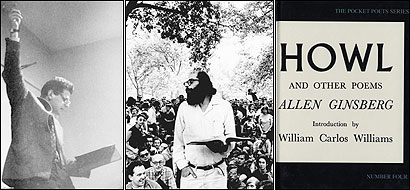
November 1, 1956, Lawrence Ferlinghetti published Howl and Other Poems by Allen Ginsberg. (see Howl judgement for more)
Beatles in trouble
November 1, 1960: furious that The Beatles had made a verbal agreement to play at rival Peter Eckhorn’s Top Ten Club, Kaiserkeller owner Bruno Koschmider terminated their contract. Despite this, they continued to perform at the club for another three weeks. An additonal reason why Koschmider wanted them out: at 17 years of age, George Harrison was too young to be working in the club. Eckhorn’s statement read: I the undersigned hereby give notice to Mr George Harrison and to Beatles’ Band to leave [the Club] on November 30th, 1960. The notice is given to the above by order of the Public Authorities who have discovered that Mr George Harrison is only 17 (seventeen) years of age. (see Nov 20)
News Music/Bob Marley
November 1, 1964: Bob Marley’s Wailers’s first single, ‘Simmer Down‘, reached Number 1 in Jamaica’s JBC Radio Chart.
News Music/Buffy Sainte-Marie
In 1964 Buffy Sainte-Marie’s first album released. It’s My Way (see Dec 22)
“Wild Thing”
November 1, 1965, Jordan Christopher & The Wild Ones release “Wild Thing.” Written by Chip Taylor (born James Wesley Voight, brother of actor Jon Voight; uncle, therefore, of Angelina Jolie). (see July 25, 1966)
“Wonderwall Music”
November 1, 1968: George Harrison became the first member of The Beatles to release a solo project, an LP called “Wonderwall Music.”
Paul McCartney’s January 1967 The Family Way soundtrack recording is sometimes considered to be the first Beatles solo album, but most critics consider Wonderwall Music to be the first, because it was released under George Harrison’s name while The Family Way was credited to George Martin.
The songs, recorded in December 1967 in England, and January 1968 in Bombay, India were virtually all instrumental, except for some non-English vocals and a slowed-down spoken word track. “Wonderwall Music” is notable for being the first official LP release on Apple Records. (see Wonderwall for expanded story) (next Beatles, see Nov 8)
Abbey Road
November 1 – December 26, 1969: Abbey Road the Billboard #1 Album. The Beatles’ Let It Be album will be released on May 8, 1970 and be the Billboard #1 album from June 13 – July 10, 1970. Let It Be was actually recorded in before Abbey Road in February 1968, January – February 1969. Since most of Let It Be was recorded in January 1969, before the recording and release of the album Abbey Road, some critics argue that Abbey Road should be considered the group’s final album and Let It Be the penultimate. (see November 26)
Elvis Presley
November 1 – 7, 1969: after seven years off the top of the charts, Elvis Presley’s “Suspicious Minds” is #1 on the Billboard Hot 100. It will be his last #1 during his lifetime. (see December 21, 1971)
November 1 Peace Love Art Activism
FREE SPEECH
United States v. 31 Photographs
November 1, 1957: in the case of United States v. 31 Photographs, a U.S. District Court judge cleared the way for importation of 31 photographs that the Alfred Kinsey had sought to import for his scientific research on sexuality. The judge ruled that the photographs could be brought into the U.S. because they were material for scientific study and not public consumption. The decision ended a three-year battle over the photographs.
While the decision was a victory for Kinsey and his research, it was a very limited one with respect to censorship of sexually related materials, given its narrow focus on research materials. (see May 6, 1959)
MPPA
November 1, 1968: the Motion Picture Producers Association (MPPA), struggling to adapt to both anti-censorship court decisions and more tolerant public attitudes regarding sexuality in the movies — but not willing to abandon all restraints — put into effect a new movie ratings system. The categories were G, PG, R and X. [Wikipedia article] (see Nov 12)
Colin Kaepernick
November 1, 2017: Papa John’s Founder and CEO John Schnatter claimed that the NFL kneeling protests were costing the company lots of money. Papa John’s had been an official NFL sponsor since 2010, but has seen its stock drop 24 percent in 2017
Schnatter blamed NFL commissioner Roger Goodell. Schnatter said, ““The NFL has hurt us by not resolving the current debacle to the players’ and owners’ satisfaction … The NFL has hurt Papa John’s shareholders.” [CNN article] (US Labor, see Nov 2; FS & CK, see Nov 14)
NFL cheerleader
November 1, 2018: a San Francisco 49ers cheerleader appeared to take a knee during the national anthem. It was the first time that an NFL cheerleader had done so. (Colin K, see February 15, 2019)
November 1 Peace Love Art Activism
Clarence Earl Gideon
November 1, 1963: in a speech before The New England Conference on the Defense of Indigent Persons accused of Crime, Attorney General Robert Kennedy stated: “If an obscure Florida convict named Clarence Earl Gideon had not sat down in prison with a pencil and paper to write a letter to the Supreme Court, and if the Supreme Court had not taken the trouble to look for merit in that one crude petition among all the bundles of mail it must receive every day, the vast machinery of American law would have gone on functioning undisturbed.” (see Gideon for expanded story)
November 1 Peace Love Art Activism
Vietnam
South Vietnam Leadership
November 1, 1963: South Vietnamese general Duong Van Minh, acting with the support of the CIA, launched a military coup which removed Ngo Dinh Diem from power. (see Nov 2)
Operation Rolling Thunder
November 1, 1968: after three-and-a-half years, Operation Rolling Thunder comes to an end. In total, the campaign had cost more than 900 American aircraft, 818 pilots dead or missing, and hundreds in captivity. Nearly 120 Vietnamese planes had been destroyed in air combat or accidents, or by friendly fire. According to U.S. estimates, 182,000 North Vietnamese civilians were killed. Twenty thousand Chinese support personnel were also casualties of the bombing. (see Nov 5)
Operation Popeye
November 1, 1968: the southern region of North Vietnam was removed from the Operation concurrent with a halt to conventional bombing of North Vietnam. (see Popeye for expanded story)
November 1 Peace Love Art Activism
INDEPENDENCE DAY
November 1, 1981: Antigua and Barbuda independent of the United Kingdom. (see September 2, 1983)
November 1 Peace Love Art Activism
Feminism
Early Money Is Like Yeast
November 1, 1986: EMILY‘s (Early Money Is Like Yeast) List was established in 1985 to help elect pro-choice Democratic women to office in the 1986 election. By November 1986, EMILY’s List raised over $350,000 for two Senate candidates. (see Oct 3, 1988)
November 1 Peace Love Art Activism
Maastricht Treaty
November 1, 1993: the Maastricht Treaty took effect, formally establishing the European Union. [Britannica article]
November 1 Peace Love Art Activism
LGBTQ
November 1, 2010: The 9th US Circuit Court of Appeals stays Judge Virginia Phillips’ injunction on Don’t ask, don’t Tell pending appeal. [NYT article] (see Nov 12)

